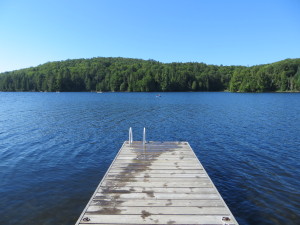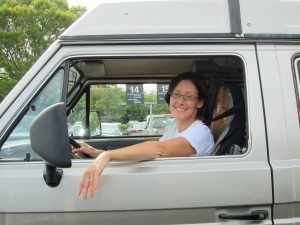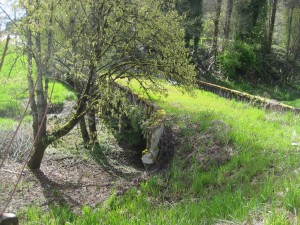I lie at the end of our swimming dock, face down. My forehead and nose and thighs and shoulders press against the rough boards.
The silvered wood has seen winter and summer, summer and winter. I have scrubbed it on hands and knees and let it dry and brushed on Thompson’s water seal. Then droplets of water bead upon it like tiny jewels, holding a spark of the sun.
Through the cracks in the boards I see the glint and swish of shadowed water. Tiny waves lap against the rocks piled in the crib, which supports the dock. On my back is sun, tussling with the breeze, as one tries to warm my bare skin and the other raises goose bumps along it.
A dock spider nearly the size of my hand, gray-furred like a mouse with so many more legs, guards a marble-sized, silken ball of eggs. Out on the water, the pair of loons that nests, year after year, on the island in the portage bay sails past, cooing the way they do. Those small sounds of love.
This is my place. This is where I go when I need to remember the important things.
In TRUE NORTH, Elliott Merrick writes:
It is the land, the long white lakes, the forests and mountains and rivers, the space and the northern lights and the cold and beauty. Nothing within the scope of our comprehension is as worth knowing as the heart of that. Even if there were no reason, no benefit, even if it were not an antidote for every poison that complex living distills, even if it were not strengthening and sparkling, this would still be so.
His North is blanketed in snow and ice. Mine is held in the arms of summer. But the answer is still true–the cure is in the wilderness.



